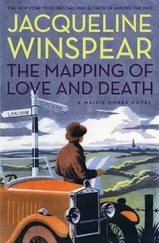Momma’s romantic standing is not a “safe” thing for her. A woman like me finds out love is a different kettle of fish—I should have been a prostitute. This stuff boils in Momma; it is her sexual temper—it supplies the vivacity in Ma’s sultry, wanting-vengeance prettiness. Tempestuousness and mind—Ma suspects everyone of cheapness when it comes to love— except S.L. , her husband. Lila romanticizes his emotional extravagance, his carelessness—perhaps he is romantic.
She is alive and reckless and glowing now and does not seem devoted to remaining at home and being respectable—but she has been that so far in her life; and she feels clever in her choices. I think she is as morally illiterate as Ida, and as unscathed so far: this is what she claims by being so willful—that she is usually right, unpunished. This is what her destructiveness comes from.
Both women feel that women draw you in and are grotesquely lonely and grotesquely powerful in intimacies. Ida has a coarse look. What it is is that Ida has to be the star. Ida’s courage is self-denial and self-indulgence mixed.
Momma’s performance is ill-mounted, since it rests on Ida’s having a heart. Ma has risen from the void of dailiness and nobodyhood to flutter in the midst of her whitish fire, but she flutters burningly in avoid of heartlessness: it is worthless to be a pretty woman, but everything else is worse.
Ida governs herself shrewdly.
Momma is excited-looking: conscious-looking, alive, symmetrical—alight.
Ida “loves” Lila’s temporary brilliance —perhaps only as a distraction. But Ida looks, and probably is, happy for the moment —but in a grim way: This is where the party is. Ida is game. She says, “Oh, Lila, I am happy to be here, deluge and all. Isn’t it nice that we are neighbors? What would life be without neighbors? A desert? A bad Sahara?” She smiles nervously—boldly. A kind of sweat breaks out on her upper lip; she doesn’t care.
Lila, being so pretty, has lived with this kind of drama since early childhood and she has a peculiar air of being at home in it: Momma’s eyes and eyelids consider the speech, the praise. Momma looks selfish rather than surrendering—that means she’s not pleased as she studies Ida’s offer, its number of caveats. What it was was Ida is being careful. She should have spoken extravagantly, but she is too sure that Momma can be bought reasonably. Ma is a marvel of disobedience and a mistress of local manners carefully learned and fully felt. Her face is a somewhat contemptuous wound: comprehension and expressiveness tear her face when she catches on that Ida is smitten but impervious, made of steel , when that shows. It shows that Ida has more class than I do; that’s where the battle lines get drawn, although I will say this for myself: I give credit where credit is due. That’s a lie, often. Often she is destructive and fights the worth in other people. This is a democracy, and who’s to stop me from doing what I think is best for me?
Ida is enamored and is immune to her, superior, la-di-da and all.
Lila arranges her voice: “I’m glad you came to see me.” It’s not her being a femme fatale or whatever, or being amusing anymore—she is holding back. She sounds a little like Ida.
Ida raises her head, blinks, puffs on her cigarette—looks at Ma, level-eyed, looks away.
This is interwoven with Ma shifting her legs, then her torso, and its burden of breasts on the slender ribs.
Both women are controlled—and full of signals—so many that I don’t see how they can keep track of what they are doing in the world, what with all their speed and knowledge and feelings and all the breaths they have to take.
They avoid each other’s eyes, except passingly, for more than a minute—it is as intense as speech. Then they are still. Both have small smiles. This is where the lions and the tigers walk.
Momma has a dark light coming from her. She is a nervous star that gives a dreamer’s light even at this late date.
She says, “Did you come over in the rain to see me for a purpose? You wanted to see me all dressed up for a party, when I was nervous? A ready-made fool? All dressed up and no place to go.”
Ida says at once, “Oh, Lila, no—no lovey-dovey.”
She tramples on Lila’s music—that request for sympathy. “I hate lovey-dovey— lovey-dovey is brutal. It’s terrible .” A love speech, bossy, intent, deep-feelinged: Ida’s sort of deep feelings.
Momma is perplexed by so much intensity, so much style , and all that energy, with none coming toward her—except maybe nibblingly, condescendingly—but directed at Ma’s flirtatious mockery. It was a love speech asking for rough play.
Ida’s personal fires are alight and skeletal. They are not like the expansive whirlwinds and fires in which Momma is trapped and consumed; Ida’s have focus and great style. Momma feels Ida’s unforgivingness as character and strength, but it’s directed toward what Lila is—a beauty of a certain kind, a flirt and willful, a Jew—and that is unforgivable. But that’s how things are. You have to take love as you find it.
Ma’s tolerance and acquisitiveness and Ida’s nervousness—and her courage—are the paramount social factors, the strong movers in the board game, in the scene: both women tacitly agree on that. The soft surrenders (Lila’s phrase) that go with love when it works are what Ida was forbidding in her love speech.
Momma thinks of two bones kissing and sees how what is painful in emotion might be adjudged banal—or tedious—as clattering—and you can get away with it , loving and calling love boring. She isn’t really sure. She is a lively fire of spirit and mood, intention and will, and she can’t really do that herself, take love lightly.
Lila knows how to keep up a social air when things are tough. It is not a new experience for her that there is tragic hatred in the moment; i.e., infatuation, and rivalry, a lot of failure— love of a kind, of all kinds … women deal in love. Momma’s Theory of the Ego ( that everyone and her mother thinks she is the Queen of the Earth ) now holds, in this flying moment, that Ida cannot bear not being the prime example of beauty in the room, in the world: She only chases me so she can be better than someone like me: she has to be the star; her husband, Ben, is the same way, but he kowtows to her because she has the money and he bullies everyone else.
Momma calls a moment like this, this-kind-of-thing, We’re getting in deep. It is her form of mountain-climbing: exhaustion, danger, despair. The fires of mind and of physical courage in her are a working heat for her getting her own way —according to her Theory of the Ego—but in such an extravagantly putting-on-a-show fashion that it does not seem to her to be of the same family as Ida’s putting on a show, which is more measured, purposeful, meanly hammerlike, tap, tap, tap … She’s like a machine. She has a position to keep up—there are demands on her all day long—she can’t give her all to any one thing —that’s Lila being fair … But she’s a fake: that’s Lila being Lila.
Physical desire in Ida is the trembling of nerves in a strong woman’s frequently disowned body. Ida is warm—or hot—but without dignity in physical negotiation, a rich woman. She maintains her value against Lila’s more and more immodest-seeming glamour: why is this woman still shining at the age she is? (Daddy would say Ma was on a rampage.) A wild pathos and self-pity invest Ida with an air of threat in her desirousness—she feels she deserves erotic reward. Ida’s class, her being superior to Momma in self-control and focus, her sexual abnegation at times , her hardness about defeat and the hurt of others oppress Momma as signs of not being infatuated with her is what I think. Whereas Ida feels love is one substance throughout eternity—that it shouldn’t matter what deformities that will and privilege and folly have forced on the softer tissues of the self in the course of your living the way you live if someone loves you.
Читать дальше












